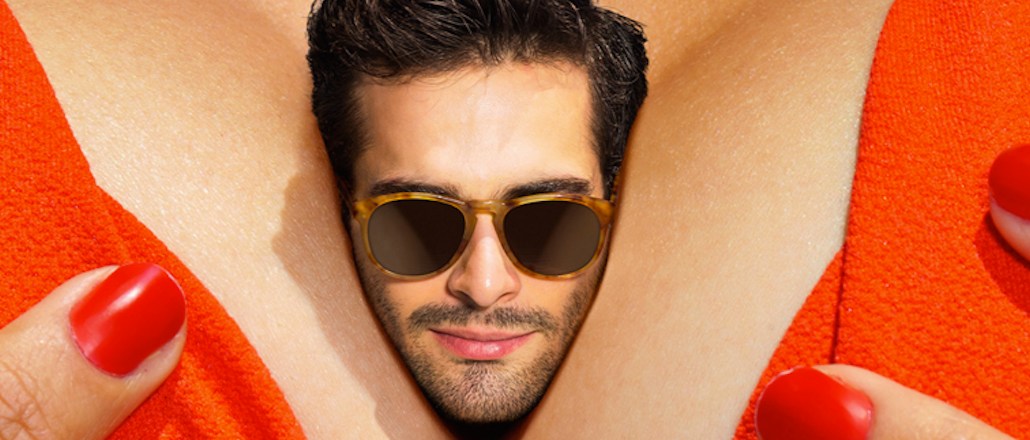Secure your place at the Digiday Publishing Summit in Vail, March 23-25

Surprising as it may be, some brands still have not accepted that objectifying women’s bodies isn’t the way to sell a product.
Amsterdam menswear brand Suitsupply is under fire for its latest ad campaign, titled “Toy Boys.” The spring/summer campaign shows a series of images that depict tiny men in suits frolicking among disproportionally gigantic female bodies.
The photos depict the women almost as a perverted playground: Two men are pictured sliding down a model’s bare chest, a man’s legs are seen sticking out of a woman’s mouth, and in another, it’s a man’s head popping out between two red-lipsticked lips. One shows a man standing on a woman’s shoulder, spraying a hose into her mouth.
Naturally, the suggestive campaign has sparked outrage on Twitter.
It’s 2016 and a mass menswear brand is using a sexist, derriative ad campaign. Women are not objects @suitsupply. pic.twitter.com/RgrMVm0ebM
— Megan Ann Wilson (@shegotgame) February 25, 2016
Bruh, you’re really doing this in 2016? https://t.co/WcBUkLdieW — Trap Palin (@frazierapproves) February 24, 2016
Not cool @suitsupply. Degrading women’s bodies to sell your suits. #wakeup #everydaysexism @WEP_UK pic.twitter.com/XyGsv7d6qV
— Tanya Moodie (@tanyamoodie) February 24, 2016
@suitsupply you legitimately have the worst marketing in the menswear industry — Ikiré Jones (@IkireJones) February 24, 2016
Suitsupply, which sells internationally online and in brick-and-mortar, has caused controversy with its ad campaigns before. In 2010, an ad that showed a suited man holding down a woman by her neck was removed from Facebook. In 2014, the retailer had an ad on its website that let the customer view the spread’s bikini-clad women topless.
However, the company’s CEO Fokke de Jong is standing by its latest campaign, saying that it’s the men who are being objectified in the spread, not the women. “Sexism implies inequality,” he told BuzzFeed News. “If you want to read any form of sexism in here then it has to be towards the men. They obviously do not have the upper hand here.”
The ad’s accompanying copy suggests that’s the idea behind the photos:

Those musings aren’t doing enough for customers who find the standalone images jarring and their reasonings weak. Suitsupply is pumping out the photos on Twitter, and each is receiving a string of replies showing disgust for the brand’s tactic. Suitsupply is only responding to the (few and far between) positive tweets.
@Suit_Club Thanks for the positive feedback!
— SUITSUPPLY (@suitsupply) February 24, 2016
@suitsupply What is wrong with you? These are the most misogynistic ads I ever saw. Please take them down. — PAT STONE (@PATSTONE55) February 24, 2016
“Toy Boys” comes a month after one American agency launched its own social campaign, #WomenNotObjects, aimed at ending advertising that objectifies women to sell product. Created by Madonna Badger, co-founder of the agency Badger & Winters, the campaign is anchored by a two-and-a-half minute video that runs through a decades-long history of sexism in ads, from Burger King to DirecTV, and shows models featured in the ads speaking out. The video now has 1.7 million views.
“Women shouldn’t be objectified — it’s about dehumanizing and devaluing people, and the harm that causes young women,” said Badger. “The point of our campaign is to promote ads that show how real women look.”
Suitsupply’s campaign has at least one, perhaps dubious, supporter in Maxim, which shared the ad and called it “inventive.”
More in Marketing

Why Edward Jones’ agentic AI trial comes with limits
Edward Jones tests agentic AI to drive marketing productivity, taking a measured approach as it stops short of full automation.

Footwear brands navigate uncertainty after latest tariffs flip-flop
Some 99% of footwear sold in the U.S. today is imported, according to the Footwear Distributors and Retailers of America.

Brands at eTail Palm Springs share lessons on the ‘messy middle’ of building AI tools
Here’s a rundown of lessons brands have shared about their AI implementations so far.





